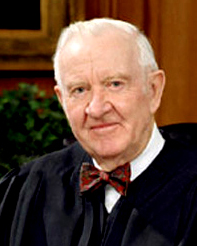 Image via Wikipedia
Image via Wikipedia
Corporations, unions, and lobbying groups are fictions created by governments. They are constructs deserving of contractual and statutory privileges, duties, and protections. They are not individual human beings deserving of rights. The Supreme Court‘s decision in Citizens United v. Federal Election Commission ( See http://supremecourtus.gov/opinions/09pdf/08-205.pdf ) essentially expands the election financing process present in California (after the passage of Proposition 34) nationwide ( See http://www.fppc.ca.gov/reports/billion_dollar_money_train.pdf ). During the first six years following passage of Prop 34, California’s election financing contributions rose 60-fold.
The majority in the Supreme Court missed the mark on this decision. Election financing by commercial organizations, lobbying groups, and unions is motivated by profit. As such, this commercial speech should be subject to intermediate scrutiny akin to Central Hudson Gas & Electric Corp. v. Public Service Commission, 447 U.S. 557 (1980). Alternatively, such speech should be deemed obscenity or “shouting fire in a crowded theater” ( See, for example, Abu Dhabi Commercial Bank v. Morgan Stanley, U.S. District Court, Southern District of New York (Manhattan), No. 08-7508 ).
Contrary to the Supreme Court’s intent, increasing the power of groups reduces the power of the individual’s speech (Justice Stevens (pictured) wrote the reasoned dissent.) Our founding fathers generally accepted Locke’s view that only self, defined as “that conscious thinking thing, (whatever substance, made up of whether spiritual, or material, simple, or compounded, it matters not) which is sensible, or conscious of pleasure and pain, capable of happiness or misery, and so is concerned for itself, as far as that consciousness extends,” is deserving of natural rights.
![Reblog this post [with Zemanta]](http://img.zemanta.com/reblog_e.png?x-id=f00a5f9d-d978-4856-824f-bcc3bb9e72bf)